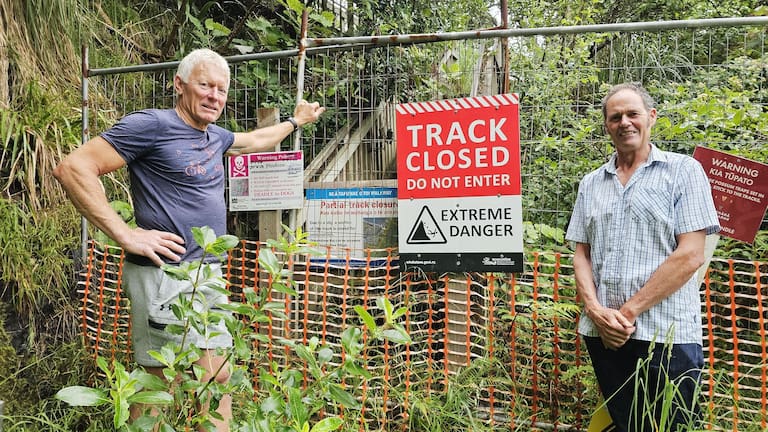Key points
- The Government has agreed to set aside $216 million it may need to pay for excise tax cuts on heated tobacco products.
- Health Ministry officials warned Minister Casey Costello against liberalising the regulation of heated tobacco products, prior to the excise tax cut.
- The Associate Health Minister said the excise reduction was aimed at ensuring alternative products, that are safer than smoking cigarettes, were cheaper and could be used by smokers to quit smoking.
A health expert says he is concerned there is "no evidence" to show people who use heated tobacco products will go on to quit smoking.
Yesterday, Associate Health Minister Casey Costello — who is also Customs Minister — said the Government would set aside $216 million it may need to pay for a 50% cut to the excise tax on heated tobacco products, where tobacco is heated to a vapour rather than burned.
However, Health Ministry officials wrote to Costello prior to the excise tax cut warning the minister against liberalising the regulation of heated tobacco products, saying there was "no evidence to support their use as a quit smoking tool" and that the move would likely compound existing concerns about youth uptake and addiction to nicotine products.
Public health professor at University of Auckland Chris Bullen told Breakfast heated tobacco products operate "kind of like a toaster" through the release of nicotine and flavours without burning. Some products use a heated blade or pins which are pushed into the tobacco stick, while others use induction technology to heat the tobacco from within.
"They're potentially a little bit safer than a regular combusted tobacco cigarette … With heated tobacco products the likelihood is that the harms of inhaling the product are less," he said.

"However, there is no evidence to show they help smokers to quit smoking, and that for me, is a major red flag with these products."
Asked what evidence he saw that supported it as an alternative to help smokers quit, Bullen said: "There is no evidence from any independent research that hasn't been conducted by the tobacco industry itself.
"That is a real concern if the aim of this exercise is to reduce the rates of smoking in New Zealanders down below 5% by the year 2025, I don't believe these products are going to help."
"What's been found in other market places where these products have been released, there's about 30 countries at least that I'm aware of where these products are sold, is that people continue to smoke their regular tobacco and they use these products in other circumstances.
"So the harms these people are avoiding by using these products are pretty minimal and these people will continue to be exposed to toxic products from the vapour," he said.

Minister Costello responds
In a statement to Breakfast, Minister Casey Costello said the excise reduction was aimed at ensuring alternative products, that are safer than smoking cigarettes, were cheaper and could be used by smokers to quit smoking.
"That means I'm expecting the excise reduction to pass to consumers, this is what we were advised would happen by officials and it is something we will also be monitoring," she said.
She also said she did not expect the cost to the Government to be "anywhere close to what was modelled", as the tax collected on heated tobacco products was only $3.62 million in 2022 and $5.97 million in 2023.
"Officials noted there is a lot of uncertainty around the modelling and fiscal impact because it was based on the very rapid increase in heated tobacco products use that happened in Japan, where vapes were unavailable.
"HTPs are a product that is already legal and available and what we're trialling is whether reducing excise sees smokers use them as a way to transition from smoking cigarettes. They're a relatively new product so there is limited data available on the health risks, but we do know that HTPs deliver lower emissions of harmful substances than cigarettes."
The Government has said it is still committed to achieving the Smokefree 2025 goal of fewer than 5% of New Zealanders smoking daily. Currently 6.8% smoke daily, down from 16.4% in 2012.



















SHARE ME